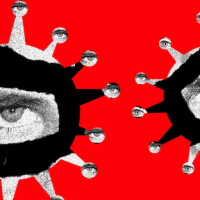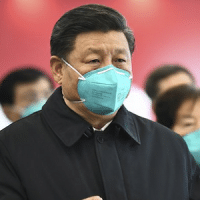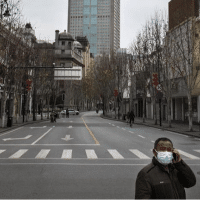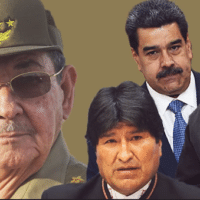-
How U.S. media misrepresent the Wuhan Institute of Virology’s laboratories and safety protocols
Even if we were to accept all the accusations against the WIV regarding their alleged subpar safety standards, none of it has any relevance to the COVID-19 pandemic unless it can be shown the WIV possessed SARS-CoV-2 in its lab before the outbreak, and there is no evidence of that.
-
Corporate media politicize WHO investigation on Covid origins to vilify China
One key factor in spreading suspicion that the coronavirus might have escaped from the Wuhan Institute of Virology (WIV) is media’s early and ongoing politicization of the World Health Organization’s investigation into the pandemic’s origins. Much of this politicization weaponizes Orientalist tropes about China being especially, perhaps genetically, untrustworthy—the sort of people who would unleash COVID-19 on the world.
-
Western media incite anti-Asian racism when they join in Cold War against China
Over the past few weeks, the subject of anti-Asian racism has received an unusual degree of Western media attention, ever since a video showing the January 28 killing of Vicha Ratanapakdee, an 84-year-old Thai immigrant in San Francisco, was widely shared on social media.
-
Corporate Media’s leaked Chinese documents confirm China didn’t hide COVID-19
Several reports on China’s response to the COVID-19 pandemic came out late last year, based on what U.S. outlets like CNN, the New York Times and ProPublica claimed to be leaked Chinese documents. Although these reports implied that China was responsible for how bad the pandemic has been because of its downplaying of numbers and censoring of critical information, these narratives are themselves misleading in several ways.
-
No, China didn’t ‘stall’ critical Covid information at outbreak’s start
Now that some time has passed since the beginning of the outbreak, it’s worth revisiting the less-conspiratorial corporate media narrative that the Chinese government maliciously or incompetently delayed the release of critical information early on, thereby causing many unnecessary deaths.
-
Socialism’s increasing popularity doesn’t bring media out of McCarthy era
Ever since the Great Recession in 2008, and accelerating with Sen. Bernie Sanders’ 2016 presidential run, there has been a resurgence of popularity and interest in socialism in the U.S., and an increasing skepticism of capitalism.
-
Evidence-free ‘lab leak’ speculation boosts Trump’s Xenophobic approach to Coronavirus
Ever since the outbreak of COVID-19 was first detected in Wuhan, China has been the target of relentless hostile and racist media coverage, depicting the country as a uniquely nefarious source of disease (FAIR.org, 3/24/20, 5/7/20).
-
Debunking Trump and Corporate Media’s WHO/China coverup conspiracy theories
The Trump administration suspended funding to WHO in April—the UN’s primary infectious disease–fighting body—accusing it of “severely mismanaging and covering up the spread of the coronavirus,” and of taking China’s allegedly deceptive claims about its handling of COVID-19 at “face value.” But corporate media had already been boosting these same talking points.
-
Corporate Media don’t think Americans paid to invade Venezuela Count as mercenaries
When an attempted invasion of Venezuela launched from the shores of Colombia was foiled on May 3, after armed commandos were intercepted at Venezuela’s coastline of La Guira, it seemed undeniable that the heavily armed men, possessing satellite phones and uniforms with the U.S. flag emblazoned on them, had been paid to take part in a coup attempt to overthrow the Venezuelan government (People’s Dispatch, 5/6/20).
-
WaPo’s Afghan papers propagate colonial narrative of noble intentions gone awry
In an earlier article (FAIR.org, 12/18/19) regarding the Washington Post’s Afghanistan Papers (12/9/19), I discussed how the Post’s exposé also exposed the Post as one of the primary vehicles U.S. officials use to spread their lies, and why it’s impossible for corporate media outlets like the Post to raise more substantive questions about the deceptive nature of U.S. foreign policy.
-
Media wonder: Why can’t Venezuela be more like Bolivia?
Western corporate media outlets have often cried foul when foreign elections don’t go the way the U.S. empire wants them to, and find roundabout ways to label the violent attempts by vocal right-wing minorities to use military forces to overthrow leftist governments as “protests” rather than coups (FAIR.org, 5/16/18, 5/1/19).
-
Record inequality and corporate profits are what media call a ‘strong economy’
Last month, CNBC (10/7/19) reassured us that fears of a potential recession are “overblown,” because the “hard data” shows that the “U.S. economy remains strong.”












